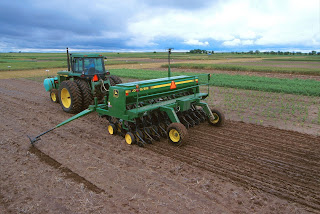Fact from Fiction about Insurance Coverage
Nora Rhoades, Family and Youth Development Agent
 Ken Selzer, Kansas Commissioner of Insurance, discusses nine common insurance misconceptions that may occur from a lack of policy knowledge. These misconceptions were compiled from questions to the Kansas Insurance Department Consumer Assistance Division and the National Association of Insurance Commissioners (NAIC).
Ken Selzer, Kansas Commissioner of Insurance, discusses nine common insurance misconceptions that may occur from a lack of policy knowledge. These misconceptions were compiled from questions to the Kansas Insurance Department Consumer Assistance Division and the National Association of Insurance Commissioners (NAIC).
The content in this article is from Insurance Matters, an informative column made available by the Kansas Insurance Commission. If you have insurance questions, contact their Consumer Assistance Division by calling 1-800-432-2484, or by going online to www.ksinsurance.org to use the chat feature on the home page.
Taking the time to read the fine print of health, auto and home insurance policies may not always happen with consumers. Yet, it pays to understand what you are purchasing so there are no surprises if you ever need to file a claim.
 Ken Selzer, Kansas Commissioner of Insurance, discusses nine common insurance misconceptions that may occur from a lack of policy knowledge. These misconceptions were compiled from questions to the Kansas Insurance Department Consumer Assistance Division and the National Association of Insurance Commissioners (NAIC).
Ken Selzer, Kansas Commissioner of Insurance, discusses nine common insurance misconceptions that may occur from a lack of policy knowledge. These misconceptions were compiled from questions to the Kansas Insurance Department Consumer Assistance Division and the National Association of Insurance Commissioners (NAIC). - My spouse wants a life insurance policy, but I don't think it is necessary. While life insurance covers the life of the policyholder, it is the policyholder's family who benefits from the coverage. If a family's primary breadwinner passes away, how will that person's income be replaced? Also, consider potential losses incurred by the passing of a stay-at-home parent who cleans, takes care of children, and manages a home. It could cost a lot of money to replace these services. Understanding your family's needs will help determine whether a life insurance policy makes sense.
- I only need collision and liability coverage for my vehicle. Liability coverage protects you and your family if you are at fault during an accident, and it will cover damages to property, vehicles or people up to your policy limits. Collision coverage will cover costs to repair your vehicle (minus the deductible) in a collision such as hitting a pole, a vehicle or another object. However, if your vehicle is stolen, or flooded, or if you hit a deer, you'll need comprehensive coverage to recoup your loss. Think about all of your risks and the potential costs of replacing a vehicle when deciding on coverage.
- If I lend my car to a friend, and my friend has an accident, his/her insurance will cover it. It may seem only fair that a friend's insurer would cover the accident, but auto insurance follows the vehicle, not the driver. Therefore, your insurer would bear the primary responsibility for any damage a friend causes while borrowing your vehicle. If the damage exceeds your policy limits, then your friend's policy would kick in as secondary.
- I do not need any additional rental car insurance because my credit card will cover me. Many credit cards will only cover collision insurance, not liability. That means you'll be on the hook for the other driver's damages if you're at fault. In addition, depending on where you travel, your credit card company may restrict coverage. However, your own auto insurance policy might cover a rental car, so be sure to call the company as well. Don't make assumptions; take time to find out what is covered.
- Health insurance is available for purchase whenever I need it, no matter what. Not true. To purchase coverage in the individual market or from the federal marketplace, you must either purchase during open enrollment or experience a qualifying life event, such as marriage, birth of a child, divorce or death. Additionally, if you get a new job that offers health insurance, you may have to wait 30-60 days before your coverage takes effect.
- Health insurance will pay the same, no matter where I receive care. Insurers negotiate payment rates with networks of providers. If you use a provider outside your insurer's network, your insurer may not cover the entire bill, and you may be required to pay more out-of-pocket. Check to see if your provider is in your insurer's network to avoid a surprise bill.
- My state's minimum auto liability coverage is sufficient. If you're at fault for an accident where you damage an expensive vehicle or more than one vehicle, your minimum property damage limits might not cover the full costs of the damage. Have you checked what your liability limit is for bodily injuries? Serious injuries or even death can translate into millions of dollars in settlement fees. In this case, you are personally responsible for the costs not covered by your auto insurance policy.
- A tree in my backyard fell and hit my home; therefore, the removal and damages are covered. If the tree was damaged by water or wind, you may not be able to get it replaced, depending on the language of your policy. If not, you're covered for damages to your home and any of your belongings that were also damaged. You will have to pay your deductible, but your homeowners insurance typically will also cover the cost of removing the tree and even replacing it.
- Homeowners insurance means I am covered for flooding losses. Think again. Flood insurance is not covered as part of standard homeowners and renters insurance policies. If you want to be covered for flood damage, you'll have to purchase coverage specific to flooding. If you live in a flood zone or if your home could be flooded by an overflowing creek or pond, or even water running down a hill, look into buying flood insurance. And buy it before you need it, because there is a 30-day waiting period after purchase before the coverage takes effect.
The content in this article is from Insurance Matters, an informative column made available by the Kansas Insurance Commission. If you have insurance questions, contact their Consumer Assistance Division by calling 1-800-432-2484, or by going online to www.ksinsurance.org to use the chat feature on the home page.







